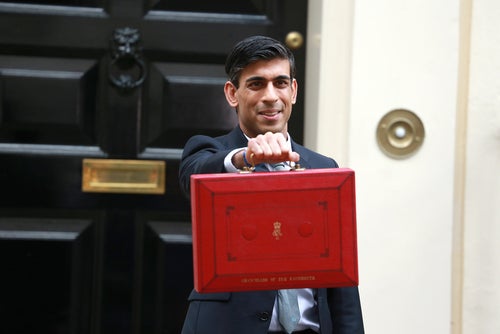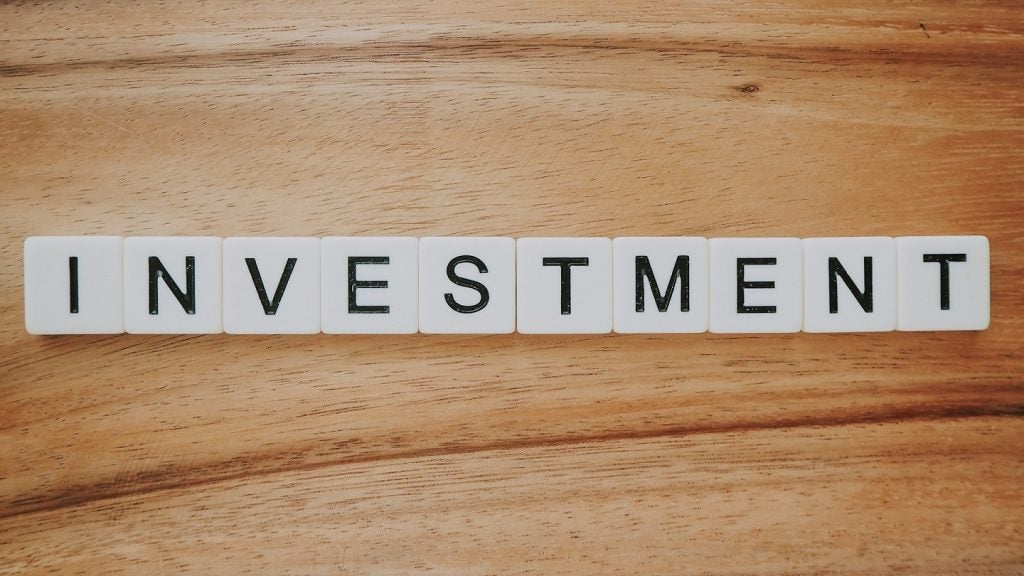
Fleet managers and vehicle lessors have largely welcomed the Chancellor’s decision to cut fuel duty by 5 pence per litre during the Spring Statement 2022, but many questioned if enough was being done to support the long-term goal of electrification for the sector.
The Chancellor of the Exchequer, Rishi Sunak, told parliament yesterday: “Today I can announce that for only the second time in 20 years, fuel duty will be cut. Not by 1, not even by 2, but by 5 pence per litre. The biggest cut to all fuel duty rates – ever. And while some have called for the cut to last until August, I have decided it will be in place until March next year – a full 12 months. Together with the freeze, it’s a tax cut this year for hard-working families and businesses worth over £5bn. And it will take effect from 6pm tonight.”
Giving his reaction to the speech, Association of Fleet Professionals (AFP) chair Paul Hollick said: “The Spring Statement really does serve as a point of focus for the rising costs that all fleets are currently facing, especially given poorer growth and inflation forecasts. Literally, every part of the cost equation that goes into operating cars and vans are facing substantial rises.
“While the Chancellor has taken some actions that will serve to offer some mitigation, such as the reduction in fuel duty, none of these will really alter the overall direction of travel.
“The AFP view, in general, is that businesses should look to proactively manage their way through this situation and, for many, that will ultimately mean speeding up EV adoption, accessing permanently lower fuel and overall running costs.
How well do you really know your competitors?
Access the most comprehensive Company Profiles on the market, powered by GlobalData. Save hours of research. Gain competitive edge.

Thank you!
Your download email will arrive shortly
Not ready to buy yet? Download a free sample
We are confident about the unique quality of our Company Profiles. However, we want you to make the most beneficial decision for your business, so we offer a free sample that you can download by submitting the below form
By GlobalData“Also, in the light of ongoing electrification, we were hoping to see more news on both the post-2024-25 benefit-in-kind tables and the road charging schemes that it appears will replace diesel and petrol fuel and vehicle excise duty – but it seems the government is not yet ready to unveil its plans.”
Lex Autolease head of fleet consultancy Ashley Barnett said: “An electric future simply can’t happen overnight. While rising fuel prices might trigger a switch to an electric vehicle, the affordability of EVs still remains a key barrier towards mass adoption, with an ICE vehicle the only option for many drivers.
“Therefore, as fuel prices continue to soar at an alarming rate, it’s welcoming to see the government take steps to reduce taxes on fuel and alleviate the pressures that businesses and motorists are continuing to face at the petrol pump.”
LeasePlan UK head of consultancy services and customer value Matthew Walters said: “We strongly welcome Rishi Sunak’s decision to cut the main rates of fuel duty. With pump prices at record highs – and rising – motorists needed something more than the rate freeze that has persisted for over a decade now. In this respect, the Chancellor has delivered.
“However, as welcome as this duty cut is, it is likely to offer only limited relief to squeezed budgets. The average cost of a litre of petrol has risen by more than 5p over the past week – if that trend continues, the Chancellor’s discount could effectively be wiped out within days.
“Of course, what is most helpful for the future is strong, consistent, long-term incentives for electric motoring, so that more people can afford to switch to EVs and avoid high prices at the pump.”
Discussing the wider Spring Statement, Walters added that he was disappointed by a lack of announcements on company car tax rates. He said: “Previously, Rishi Sunak had a good record on warning businesses and motorists of upcoming company car tax rates. However, that record is starting to tarnish.
“The rates for 2025-26 and beyond still haven’t been confirmed – meaning that fleets entering into three- or four-year contracts today are unable to plan properly for the future.”
Walters was also critical of the Chancellor’s newly-published Tax Plan, saying: “It’s a slight document that doesn’t address one of our concerns from after last year’s Autumn Budget: so many other tax reviews and consultations – into VED for cars, into VED for vans, into a ZEV mandate, and more – have not yet led to any confirmed legislative action, even though some were originally announced years ago.
“If some of these ideas have been dropped, then the Chancellor should tell us so. If not, then he should confirm the details as soon as possible. The fleet industry needs as much information as possible in order to fully prepare for the future.”
Fleet Operations director of consultancy and strategy David Bushnell said: “Pump prices have hit fleets particularly hard over recent weeks and so the 5p cut in fuel duty must be welcomed.
“This may be ‘the biggest cut to all fuel duty rates ever’, but we cannot lose sight of the fact that this cost burden has not just arisen following the crisis in Ukraine. Average petrol and diesel costs have risen by 33% and 38% respectively in just 12 months, from 124.6p and 129p per litre in March 2021.
“Oil price volatility shows few signs of abating and so fleets must find other ways to ease the financial pressure. With the business case for electrification growing ever stronger, fleet fuel strategies should continue to be reviewed, along with cost control measures that can help ease the financial burden – from effective vehicle maintenance and fuel discount structures to more effective mobility management.”
Turning to environmental concerns, Bushnell added: “It is also worth noting that the decision since 2010 to freeze fuel duty has led to an increase in emissions of up to 5%, so the fuel duty cut obviously does little to support the UK’s Road to Zero ambitions.
“The Chancellor may have scrapped VAT on home energy-saving measures such as insulation, solar panels and heat pumps but has offered fleet operators nothing in the way of any new incentives to encourage EV take-up which may have helped balance out the CO2 impact of the fuel duty rise.”
Nexus Vehicle Rental CEO David Brennan said: “With fuel costs at a record high, we welcome the announcement of a cut to fuel duty. Whilst this may offer some relief to individuals and businesses operating their fleets, it is estimated to only be around £3.30 per tank.
“This clearly shows that the government recognises the need to support individuals and businesses dealing with the rising costs of living, however, we acknowledge that this is just one challenge that the industry is currently facing, alongside a great shortage of vehicles and parts that are making manufacture increasingly difficult.”
Brennan added that he was disappointed not to see any further support from the Chancellor for the EV industry.
He said: “As we move ever closer to the 2030 ban on [new] petrol and diesel vehicles, there is still more that needs to be done to support EV manufacturers to ensure they are more affordable for businesses. Once again, I must reiterate that enhanced financial support is still needed from the government to increase the affordability of the vehicles and ensure there is suitable infrastructure in place for businesses that decide to make this important transition.”
Giving his reaction, Philip Nothard, insight and strategy director at data firm Cox Automotive, said: “We welcome any moves from the government which reduces costs at the pump for the motorist and for businesses like ourselves who have significant transportation operations. We would have welcomed bigger cuts too, as the automotive industry has faced extremely challenging conditions during the last 12 months with the well-documented supply issues affecting new car production.
“If the UK Government had made a more significant cut in fuel duty and followed the example of the Irish government, which confirmed last week that excise duty on fuel in Ireland would be reduced by 20 cents per litre on petrol and 15 cents per litre on diesel, the cost of a 60-litre tank of petrol would have been cut by £10 and diesel by £7.50.”
Auto Trader’s director Ian Plummer, said drivers might not notice the cut in fuel tax as demand for electric vehicles (EVs) was on the rise.
“In a climate of record pump prices, drivers may struggle to register the Chancellor’s giveaway, but the statement had to strike a difficult balancing act between helping families and protecting the public finances after the pandemic,” he said.
“Since Russia’s invasion nearly a month ago, we have seen a sharp rise in drivers looking at buying an electric vehicle as the cost of running a traditional petrol or diesel car soars.
Capital Allowances
In his Spring Statement, the Chancellor also announced a review of the capital allowances system in advance of the Autumn Budget, offering the business community (and interested parties) the chance to debate options for reform between now and then.
Gerry Keaney, the chief executive of the British Vehicle Rental and Leasing Association (BVRLA), said: “It is great to see that the Government is now open to new ideas on capital allowances. This reform could play a massive role in driving fleet and charging infrastructure investment and we will be pushing for rental and leasing to be treated fairly as an efficient and effective means of financing new assets.”
Meanwhile, the FT reported that Rishi Sunak has potentially banked most of the £50bn windfall in public finances, keeping them for a pre-election tax cut, against a backdrop of the worst fall in living standards on record.
“Better than expected tax receipts in February alongside a £13.2bn downward revision in public borrowing meant the deficit is set to be almost £30bn lower than the Office for Budget Responsibility forecast at the time of the October Budget.
“Strong tax revenues have come from the rapid growth of employment and rising inflation that is pushing up consumer spending and therefore value-added tax revenues, which were 18.3 per cent higher in February than in the same month a year earlier,” the FT reported.





